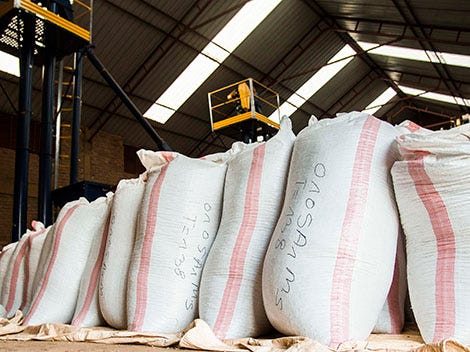Clear Lake Coffee Roasters: Coffee Origins Series- Rwanda - March 17, 2022
The commercialization of coffee, always produced on smallholder farms, came about gradually in Rwanda. Independence in 1962 brought improvement to green coffee infrastructure as the government established more modern and centralizing processing. Still, despite much of the coffee being Bourbon, there was no focus on quality until recent decades. Rwanda’s ideal growing conditions are no longer wasted on poor processing and Rwandan specialty coffees consistently rank among the finest in the world.

History of Coffee in Rwanda
The commercialization of coffee came about gradually in Rwanda and coffee was always produced on smallholder farms. Independence brought some improvement to the coffee infrastructure as the government established more modern and centralizing processing. But this meant the government set the price they would pay for coffee and farmers had no other options. There was no focus on quality because there was no incentive whatsoever. Despite much of the coffee being Bourbon, there was no sorting or grading so all the coffee was commercial grade. Rwanda exported 642,000 bags of coffee in 1993 and 447,000 in 1994. Then, as something of a stark reminder of the genocide, Rwanda exported a mere 22,000 bags in 1995. Today, Rwanda exports only 43% of what it did in 1993, but current exports represent much greater value because for the last 20 years the focus has been on quality rather than quantity. Rwanda’s ideal growing conditions are no longer wasted on poor processing. New washing stations have opened in all coffee growing regions, innovative cupping labs that arrive built into shipping containers, and cooperatives have been established. For the last 10 years, Rwandan specialty coffees consistently rank among the finest in the world.

Leave a comment
Please note, comments must be approved before they are published